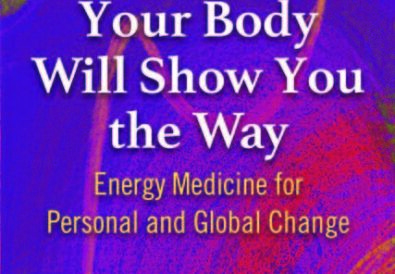We all want love, are hungry for connection and recognition. We’re all secretly waiting for the perfect relationship, the chance to be accepted just as we are.
But for many of us, relationships are difficult to find, difficult to keep and difficult to enjoy. We’re afraid of being rejected or hurt, or losing the love we’ve finally found. We do not realize that there’s no inherent difficulty with relationships at all.
Somehow we’re lost in confusion about relationships and aren’t aware of the truth about love. Relationships are always available and if it hurts, it’s not love. Real love never wounds or harms.
The Simple Practice of Love is an exploration of the Truth about love and relationships and how to practice these basic truths with everyone you meet, including with yourself. It is very simple to dispel sorrow, as you see the situation through brand new eyes.
The basic truths of love are principles, that are opposite from the way we normally approach our lives. Most feel uneasy as they enter a new relationship, having been taught to be careful and guarded. They think of the benefits and drawbacks to themselves. What will I get out of it, they wonder. Will this work out for me? But these Principles tell us that the outcome isn’t so important. Everything works out exactly as it has to. Everything becomes a chance to grow. Rather than worry about what will happen, we become grateful for the chance to grow.
There are many fundamental truths about love, and many principles. And there are different ways to live each one. Even one Principle, deeply digested and practiced, can turn your life and relationship around. A few principles and practices are offered below as an introduction to this life giving practice. Each one is easy, enjoyable, and can be done by all.
Principle One: You Have a Divine Appointment
Realize that there is an important reason you have met this person and are interacting with them. Take time to discover the gift that they are bringing to you.
Usually we think, I’ll decide who I’ll be in a relationship with, I’ll decide where it’s going and when it’s over. Most think that they are in charge of life, and make all the decisions. On one level it certainly seems that way. It seems we choose to enter certain relationships or to leave. But often we can’t stop or alter what’s going on, no matter how hard we try. We can’t enter or leave a relationship no matter how much we want to. And so many times a relationship ends no matter how badly we want it to last.
Many become depressed then, and take this as a personal failure. But it’s not. They do not realize, that no matter how they feel about it, they have a Divine Appointment to meet certain people, to interact with them and at a certain point, to part.
In Zen this is called the stream of karma. Others call it destiny. It can also be called a Divine Appointment. Call it whatever you like. Sometimes we’re very drawn to be in an activity or with a person or in a job. And sometimes we want to get away, but despite our wishes and efforts, many times we have to be right where we are.
Even when we don’t like someone they often keep re-appearing. We cannot escape it even if we want to. It doesn’t matter whether you like or dislike it, the situation just goes on. Rather than be upset by this, in the Simple Practice of Love, we learn how to respond graciously and with gratitude towards every encounter we have. Then we can finally receive the gift the other is bringing; see the true reason we’ve met.
A wonderful quote from Scripture says that we think the time of a wedding is the highest and best our love can possibly be. But it’s not true. A marriage is only the beginning. The partner who comes to us is our Teacher in what it means to love.
Principle 2: Everyone Who Comes to Us is Our Teacher In What it Means to Love.
Whoever the person who comes is, honor them. See them as your Teacher, bow to them in your mind. Thank them for what you’ll learn from them. What we see in another we bring out in them. Everyone responds deeply to the way in which you view them. When you see them as your teacher, respect them, thank them; they feel it and are uplifted. Your perception not only brings out the best in them, it heals and uplifts you as well. Whatever you offer to another, you receive yourself. When you offer love and respect, how can you be in pain?
Most of the time we have it upside down. We enter a relationship hoping the person will make us happy and meet our needs. But the people in our relationships are not objects to use to make us happy or fulfill our needs. That is a great misunderstanding that causes the fear of relationships and also causes the suffering we go through. When we view another person as an object, the chance for real love is gone.
Principle Three: Instead of Asking To Be Loved, Ask How To Be Loving
Don’t Focus on What You’re Getting Out of Your Relationship, Focus on What You’re Giving. How May I Serve You? As we dwell upon being loved or approved of by others, we become agitated, resentful, and hurt. As we focus upon being loving, we’re filled with delight.
Rather than dwell upon getting something out of another person, dwell upon what we can give them. Eliminate scheming and hoping for a certain outcome. Instead, think about the ways in which we can serve another. This removes so much of the pain we go through. We feel uplifted and happy. By giving to them, we are giving to ourselves simultaneously.
If instead we focus upon what we want and what they’re not providing, we’ll become upset and disappointed and blame them for our distress. This is another mistake. It’s never their behavior that’s upsetting us, it’s our reaction to it.
It’s also a fundamental mistake to view others as objects who are here to meet our needs. A relationship is not a commodity. Love is not a commodity to be earned or thrown away. That’s being caught in Counterfeit Love. But all of us long for the real thing, to be seen, known and valued for who we are.
Usually, our lives are ruled by what we like or dislike. We grab at what we like and discard what we don’t. If we don’t like it, we’re going to reject it and throw it away. If we like it, we’ll grab it and cling. But waves of activities, people and events come as they do, no matter how we feel. The more we can be present with all of it, the more we can accept and attend to it, the more we’ll actually end up liking everything. That’s a strange paradox, but it’s so.
People change, day by day, and by seeing them as objects to like or dislike, we’ve lost our chance to really know them, and to experience real connection and love. It’s not love when we reject another when things don’t turn out as we wish. Again, that’s part of Counterfeit Love. Allow someone to be just as they are, accept them, meet the person or situation fully. Now you are giving them room to live. This itself is love.
Principle 4: A True Meeting Heals Everything.
The Practice of Love Prepares Us For A True Meeting. First we must learn to become friends with all of life, including ourselves. Make room for whatever experience comes to you. The great wave of life refuses to be limited in what its going to bring your way. Your role in life is to taste all of it, digest it and say thank you. Simply give your full, unalloyed attention to whatever comes, without judging it or commenting. Just be fully present, receiving it, which is another way of saying, caring for it, not throwing it away.
It’s such a good feeling when someone pays full attention to you. When you pay full attention you’re really listening, really watching. It’s like pouring water on a plant. We can offer our full, unalloyed attention to everything. Zen practice is actually simply paying full attention, which is love itself. This is attention that is not distracted by our inner dialogue about what we like or dislike. It is fully there with whatever comes, no separation at all. It’s a willingness to fully experience the other, just as they are. As you do this, the true meeting happens, you become One. You see there are no others. What happens to the pain of loneliness then?
As we learn and practice these principles of love, we will see that all our relationships are spiritual practice. Whatever happens is giving us a chance to grow, be joyful, and discover the best in others and in ourselves.
Brenda Shoshanna, PhD is a psychologist, award winning author, speaker and longtime Zen practitioner. She offers Zen talks, a podcast, and workshop on Zen and Your Relationship, (Relationships As Spiritual Practice). The Simple Practice of Love. For more information go to: (www.simplelawsoflove.com) topspeaker@yahoo.com www.brendashoshanna.com www.simplelawsoflove.com www.zenwisdomtoday.com




















